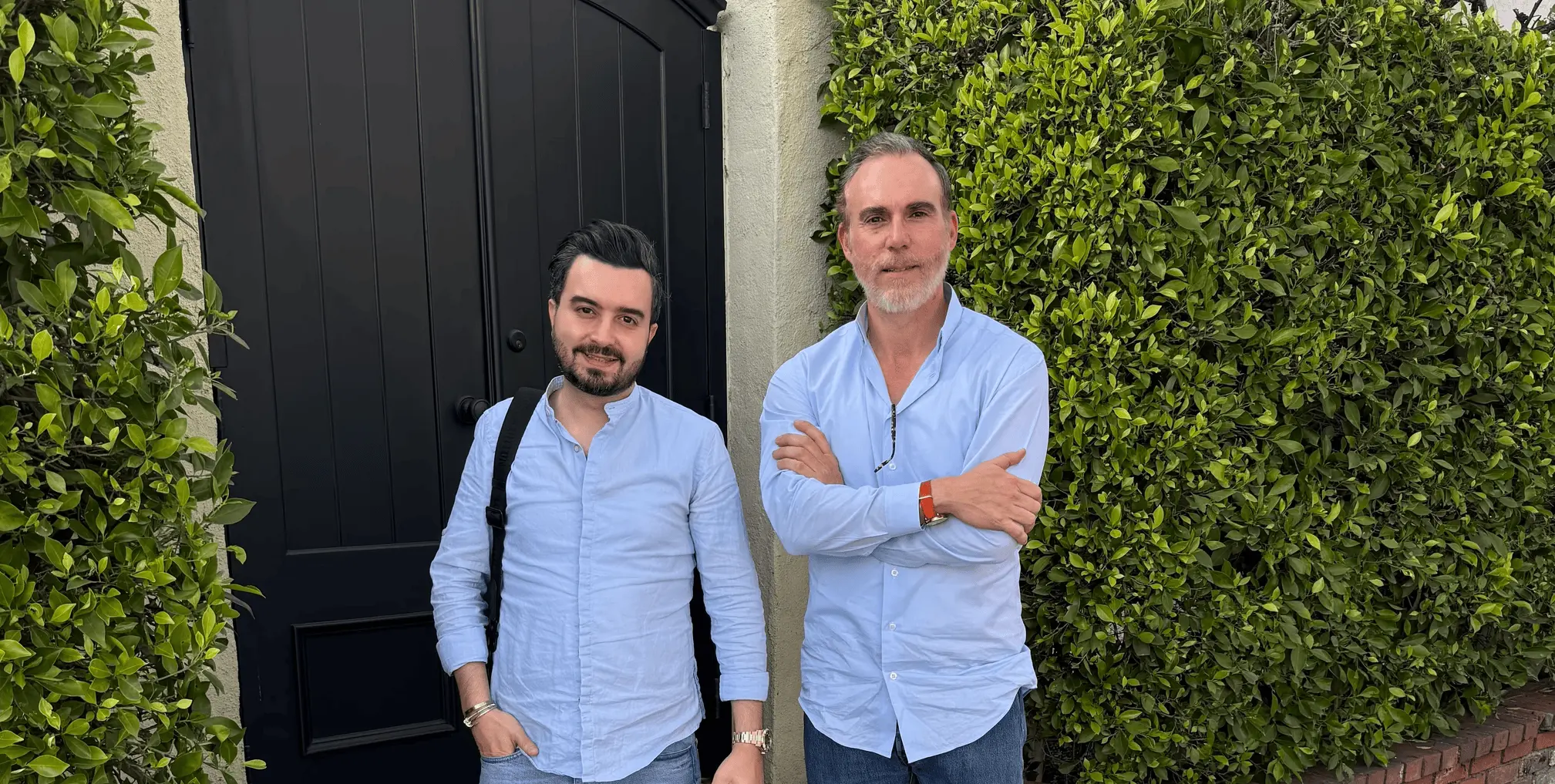What is an Answering Service for Law Firms and Why Do I need One?
An answering service for law firms is a specialized, always-on call-handling solution that greets potential clients, gathers key case details, and routes urgent matters to attorneys when office staff are busy or after hours. Instead of voicemail or missed calls, the service provides a professional first point of contact, ensuring every inquiry is logged, basic intake questions are completed, and follow-up appointments are scheduled.
By combining legal-specific scripts with 24/7 availability, an answering service keeps a firm responsive, improves client experience, and protects revenue that would otherwise be lost when phones go unanswered.
Why CaseGen’s AI Is the Future of Law Firm Answering Services
In the legal world, every call matters. The difference between landing a new client and losing one often comes down to what happens in the first 30 seconds of that phone call. For decades, law firms have relied on traditional answering services: human receptionists paid to take messages and forward basic information.
That model worked for a while. But today, traditional answering services are crumbling under the weight of modern client expectations, staffing shortages, and inefficiency.
Meanwhile, a new model has emerged, one that never sleeps, never misses a call, and never forgets a question. AI answering services like CaseGen are redefining how law firms handle intake, save time, and win more clients.
The Evolution of Legal Answering Services
The old answering service model was simple. When no one at the firm could answer, the call was routed to a third-party operator. That operator, usually juggling dozens of other businesses, would take a name, number, and brief message. Maybe they’d send it to your inbox or text it to your staff.
But that model has serious cracks. As competition among law firms intensified and digital marketing began generating leads 24/7, the expectations of callers evolved. Today’s legal consumer doesn’t want to “leave a message.” They expect immediate answers, empathy, and action, no matter the hour.
Traditional answering services simply weren’t built for that. Enter CaseGen, the world’s first AI-powered legal answering service designed exclusively for law firms. Unlike general call centers or receptionist apps, CaseGen doesn’t just answer the phone. It intelligently handles intake, capturing every detail, qualifying leads, and handing off only the most valuable cases to your team.
Why Traditional Answering Services Are Dying
The decline of traditional answering services isn’t just a technological shift. The business model itself is collapsing under the modern law firm’s needs.
1. Chronic Staff Turnover and Inconsistency
The dirty secret of the answering service industry is its constant employee churn.
Just look at their websites, one of the most-visited pages on companies like Smith.ai and Ruby Receptionists is the “Careers” or “Jobs” page. That’s because turnover is sky-high.
Every few weeks, new agents are hired and trained. Old ones quit. Scripts are lost. And the quality of your client’s first impression changes with whoever happens to pick up that day.
CaseGen solves that permanently. AI doesn’t quit, doesn’t call in sick, and doesn’t lose consistency. Every caller receives the same professional, polished experience every single time, whether it’s 2 p.m. or 2 a.m.
2. Missed Calls Mean Missed Clients
Traditional answering services are often understaffed. During busy hours or ad campaigns, they simply can’t keep up. Calls ring, no one answers, or callers are left on hold.
Each missed call could mean a $10,000 client lost forever. CaseGen’s AI never misses a call. It scales infinitely. Whether you have 10 or 10,000 callers a day, CaseGen answers immediately, routes intelligently, and never drops a lead.
Your firm becomes truly 24/7 without hiring a single new employee.
3. Offshore Agents and the “Local Trust” Problem
To keep costs low, many answering services outsource to foreign call centers. While that may save them money, it can cost your firm credibility.
When a client calls an Atlanta personal injury firm or a Chicago criminal defense practice, they expect to hear a local, fluent voice—someone who understands their region and culture. Instead, they often reach a distant voice reading from a generic script. That breaks trust immediately.
CaseGen was built differently. Its virtual agents are trained specifically for U.S. law firms and can even speak multiple languages fluently, including Spanish and Polish. Every call feels local, familiar, and trustworthy.
4. Lack of Depth and Poor Objection Handling
Traditional human agents are limited. They can take names and phone numbers, maybe brief messages—but when a caller expresses hesitation like “I’m not sure if I can afford this” or “I already spoke to another lawyer,” most agents freeze. They’re not trained in legal objection handling, and they’re often afraid to say the wrong thing.
CaseGen’s AI excels at this. It’s trained to handle objections calmly and effectively. For example, it might say, “I understand, many of our clients felt the same way before learning about their options. Would you like to schedule a free consultation to see what you might qualify for?”
By guiding the conversation strategically, CaseGen keeps callers engaged and converts more leads into signed clients without sounding robotic.
5. Scale and Cost Barriers
Traditional answering services are expensive to scale. Each additional call means more labor, more agents, and more training. The cost curve goes up while quality goes down. AI turns that upside down. CaseGen scales instantly. Whether your marketing brings in 50 calls or 500, the cost per conversation stays flat, and your response time stays instant.
This efficiency is why forward-thinking firms are rapidly moving away from legacy services toward intelligent automation.
The Rise of AI Answering Services
AI isn’t replacing humans in law, it’s augmenting performance where humans can’t compete: speed, consistency, and accuracy. Let’s look at what makes AI answering services like CaseGen revolutionary for the legal industry.
1. 24/7 Coverage, 365 Days a Year
CaseGen’s AI agents don’t sleep. They don’t take lunch breaks. They don’t call in sick. Your firm becomes a 24/7 operation overnight. Every potential client who calls, morning, midnight, or weekend, hears a professional voice, gets their questions answered, and has their intake completed on the spot.
2. Consistency and Script Adherence
Humans make mistakes. AI doesn’t. With CaseGen, every intake follows your customized flow exactly. The system never skips a question, never forgets a detail, and never improvises the wrong answer. That means you get cleaner data, better qualified leads, and a more professional first impression every time.
3. Integration With Legal Software
Traditional services send you an email or voicemail summary, if you’re lucky. CaseGen goes further. It integrates directly with Clio, Filevine, Lawcus, and LawPay, automatically entering lead data, scheduling appointments, and even triggering follow-up workflows. You spend less time managing intake and more time winning cases.
4. Emotional Intelligence and Adaptability
AI has evolved beyond monotone chatbots. CaseGen’s voice agents—like Justina, Justin, and Maya—speak naturally, with empathy, tone control, and contextual understanding. They can adjust pacing, clarify details, and respond intelligently when callers go off-script.
The result is conversations that sound human, but deliver AI-level reliability.
5. Objection Handling and Conversion Optimization
Unlike traditional receptionists, CaseGen’s AI is trained to close.
If a caller hesitates, CaseGen can provide reassurance, explain next steps, and encourage booking a consultation. It’s like having a tireless, perfectly trained intake specialist who never loses patience or focus.
Traditional Answering Services vs. AI Answering Services: The Key Differences
Traditional answering services rely on people, schedules, and manual work. They require ongoing training and supervision, and their performance fluctuates with turnover and workload. AI answering services, by contrast, operate continuously with consistent quality and integrated workflows.
Traditional systems tend to miss calls after hours, while AI answers every call day or night. Human agents may vary in tone or professionalism; AI agents maintain the same polished tone every time. Old-style services require constant hiring, whereas AI is fully automated and infinitely scalable. Intake quality with humans can be shallow, but AI ensures detailed, structured intake tailored to your firm.
Human operators are inconsistent in handling objections, while AI follows conversational patterns that convert more leads. Foreign language calls often get outsourced, but AI can handle multiple languages fluently. And when it comes to integration, AI connects directly to your CRM, while traditional services rely on manual forwarding.
Finally, there’s cost. With human answering services, costs rise with call volume. With AI, pricing is fixed and predictable.
Why Law Firms Choose CaseGen
CaseGen isn’t a general AI platform that happens to work for lawyers—it’s built by lawyers, for lawyers. Co-founded by a practicing personal-injury attorney, CaseGen understands the nuance of client intake: liability discussions, jurisdiction filtering, urgency triage, medical follow-ups, and even spam blocking.
Specialized AI Agents Built for Legal Workflows
-
Justina – The 24/7 intake agent who captures new leads and screens for case fit.
-
Justin – The outbound follow-up agent who ensures leads get signed and retainers are returned.
-
Maya – The medical coordinator who follows up on appointments and treatments.
Each agent is purpose-built to handle a specific legal workflow, ensuring no step of your client journey is left behind.
Designed for Lead Generation and Retention
CaseGen doesn’t just answer calls, it increases ROI from your marketing spend. Every missed call, every delayed response, every dropped voicemail is money wasted. By converting more calls into qualified clients, CaseGen directly impacts your bottom line. Firms using CaseGen have reported higher retention rates and shorter response times across all marketing channels.
Built for Scale
Whether you’re a solo practitioner or a 100-person firm, CaseGen grows with you. Need to handle 10,000 calls next month after a new PPC campaign?
Done.
Need a Spanish-language version for your Hispanic market? Already included. Need detailed analytics to measure intake performance? Real-time dashboards show every metric, from first ring to signed retainer.
The Future of Legal Answering Is Already Here
AI isn’t coming someday, it’s already reshaping intake today. Law firms across the U.S. are discovering that automation doesn’t remove humanity—it restores it, by allowing attorneys to focus on people instead of phone lines.
Here’s what the next generation of intake looks like:
-
Omnichannel communication across voice, text, web chat, and email, all handled by the same AI agent.
-
Real-time data flow into your CRM.
-
Predictive analytics showing which call types convert best.
-
Localized experiences with bilingual capability.
-
Full transparency and secure data handling aligned with legal ethics.
Traditional answering services simply cannot compete on these fronts. They weren’t built for automation, scale, or data.
CaseGen is.
The Bottom Line: Adapt or Be Left Behind
The writing is on the wall. Traditional answering services are dying, outpaced by technology, outperformed by AI, and out-trusted by clients. For law firms that want to survive in a world of instant communication and 24/7 expectations, the move to AI isn’t optional, it’s inevitable.
CaseGen represents that next step. It’s not just an answering service; it’s your firm’s always-on voice, your intake team, and your growth engine.
So while legacy call centers scramble to replace their burned-out agents, CaseGen’s AI continues to do what it does best, answer calls instantly, qualify leads precisely, and help law firms grow faster than ever before.
The future of client communication is intelligent, tireless, and data-driven. The future is CaseGen.
Frequently Asked Questions About Answering Services for Law Firms
How is a legal answering service different from a standard call center?
A legal answering service for law firms trains its virtual receptionists or AI agents on intake questions unique to litigation, personal injury, immigration, and other practice areas. This specialization allows the service to capture case facts, perform basic conflict checks, and schedule consultations rather than just taking a name and number, so attorneys receive qualified leads, not raw messages.
What does a virtual answering service cost compared with hiring in-house staff?
A virtual answering service for law practices works on a predictable subscription. Because you are paying for a shared or AI-driven team rather than a full-time employee, you avoid payroll taxes, benefits, overtime, and coverage gaps. Most firms find that the flat monthly fee is lower than one paralegal’s salary yet delivers round-the-clock availability.
Can an answering service integrate with my case-management software?
Yes. The best answering service for law firms offers direct or webhook integrations to Clio, Filevine, Lawcus, and LawPay. New-caller data flows into your CRM in real time, which eliminates manual data entry and ensures every lead is tracked from first ring to signed retainer.
Is a virtual answering service secure enough for sensitive legal conversations?
Look for a provider that encrypts calls with TLS in transit and stores recordings with AES-256 encryption. A reputable legal answering service is also willing to sign a Business Associate Agreement and can redact protected information, giving attorneys the same confidentiality safeguards they enforce internally.
How fast can my firm launch a virtual answering service?
Onboarding is usually completed in a single session. You provide your intake script, connect the CRM, and choose a tracking number. An AI-enabled answering service can go live within an hour, while human-staffed services typically begin taking calls within one or two business days once scripts are tested.
Does an answering service really help solo attorneys?
Absolutely. A virtual answering service for solo lawyers delivers the big-firm responsiveness clients expect without the cost of extra staff. Flat-rate pricing protects your budget, and 24 / 7 coverage means you never lose a potential case because you were in court, meeting with a client, or simply off the clock.
How does an answering service handle caller objections?
Legal-focused virtual answering services use proven conversational flows. If a prospect hesitates about fees or timing, the agent offers a free consultation slot, explains next steps, and reassures the caller that an attorney will review the case details promptly, which keeps potential clients engaged until a lawyer takes over.






